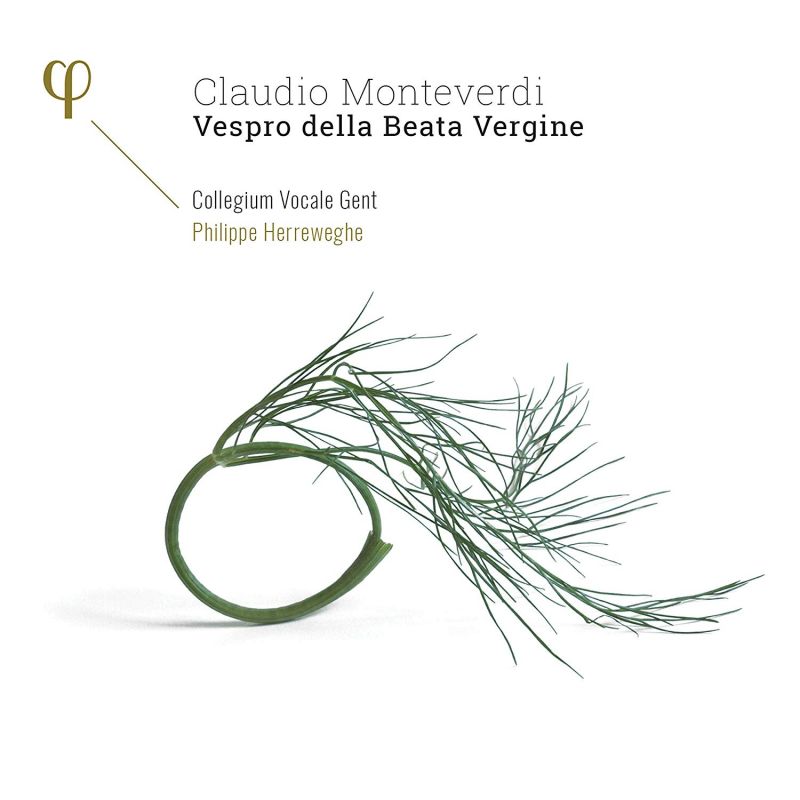MONTEVERDI Vespers (Herreweghe)
View record and artist detailsRecord and Artist Details
Composer or Director: Claudio Monteverdi
Genre:
Vocal
Label: PHI
Magazine Review Date: 10/2018
Media Format: CD or Download
Media Runtime: 88
Mastering:
DDD
Catalogue Number: LPH029

Tracks:
| Composition | Artist Credit |
|---|---|
| Vespro della Beata Vergine, 'Vespers' |
Claudio Monteverdi, Composer
Barbora Kabátková, Soprano Benedict Hymas, Tenor Claudio Monteverdi, Composer Collegium Vocale Gent Dorothee Mields, Soprano Peter Kooij, Bass Philippe Herreweghe, Conductor Reinoud van Mechelen, Tenor Samuel Boden, Tenor William Knight, Tenor Wolf Matthias Friedrich, Bass |
Author: David Vickers
Over 30 years later, Herreweghe’s radical rethinking yields shaded flexibility and kaleidoscopic dynamism. For a demonstration of his evolved approach, try the precision, transparent contrapuntal detail and focused Italianate sonorities of ‘Nisi Dominus’, the streamlined and conversational ‘Ave maris stella’ and the lively fantasy of the instrumentalists in the dancelike Sonata sopra Sancta Maria – all of them infinitely fresher and less self-consciously mannered than used to be the case.
The eight soloists (with high tenor instead of countertenor on the alto part) now sing throughout all choral pieces, reinforced only occasionally by 14 ripieno singers in tutti passages (for example, at the climactic doxologies). Collegium Vocale Gent field about the same number of instrumentalists as in 1986 but their constitution and application are considerably different – there are neither bowed string bass instruments nor bassoon, violas da gamba are used instead of violas and cellos, the recorders, cornetts (led expertly by Bruce Dickey) and trombones tend to play where the rubrics in Monteverdi’s 1610 publication demand them – thereby making a more selective and thrilling impact. The applications of continuo instrumentation (with an extra theorbo) and manner of their playing are subtler nowadays. The performing pitch is higher, in line with scholarly thinking. The only significant preserved element is that Herreweghe still inserts brief plainsong antiphons before every large-scale concertato psalm and the Magnificat. Not a liturgical reconstruction, the chants construct architectural sequences of triptychs with a psalm, solo ‘concerto’ or hymn as their centrepieces.
There is judicious tightrope-walking between the disciplined unleashing of splendid sonorities (the trombones at the closing of the Magnificat pack a surprisingly visceral punch) and exquisite intimacy in smaller-scale solo music performed with impeccable skill. Reinoud Van Mechelen’s gently stylish ‘Nigra sum’, Dorothee Mields and Barbora Kabátková’s rapturous ‘Pulchra es’ and Samuel Boden’s sweetly eloquent ‘Audi coelum’ (with sensitive echoes from Benedict Hymas) are exceptionally beautiful. One never senses a dictating ego controlling proceedings; there is a spirit of collective chamber music-making from all participants that is classy, articulate and unerringly beguiling. Recordings of the 1610 Vespers are two-a-penny but very few have delighted and impressed me as much as this.
Discover the world's largest classical music catalogue with Presto Music.

Gramophone Digital Club
- Digital Edition
- Digital Archive
- Reviews Database
- Full website access
From £8.75 / month
Subscribe
Gramophone Full Club
- Print Edition
- Digital Edition
- Digital Archive
- Reviews Database
- Full website access
From £11.00 / month
Subscribe
If you are a library, university or other organisation that would be interested in an institutional subscription to Gramophone please click here for further information.




